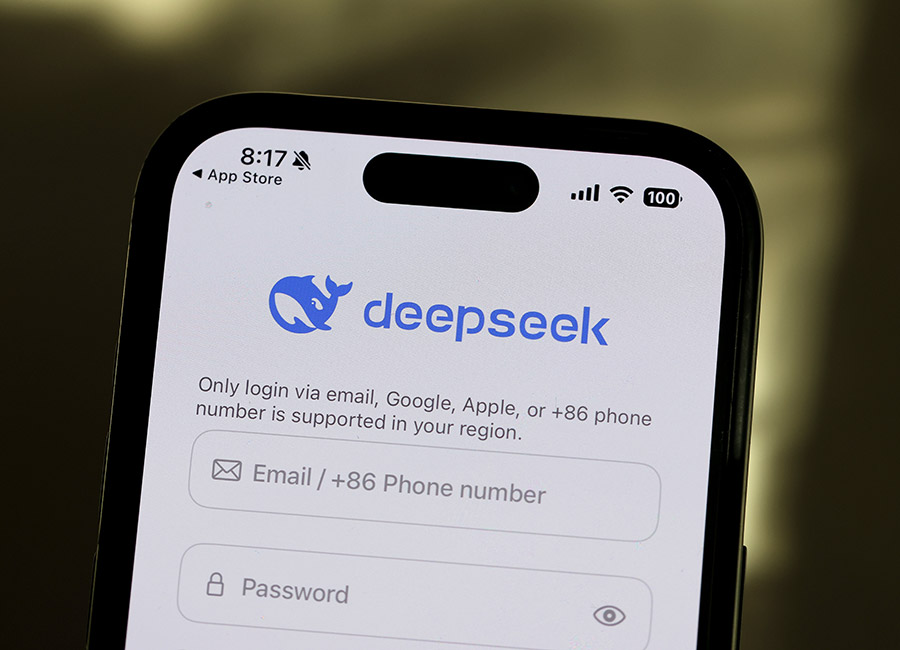In less than a week since its release, DeepSeek has usurped ChatGPT at the top of the download charts, majorly spooked investors in leading US tech firms, and changed the complexion of the AI race between the US and China.
The world’s largest technology companies lost more than $700bn in market capitalisation on Monday after influential figures in the tech world lauded the product and questioned Silicon Valley’s capital-intensive approach to AI.
Marc Andreessen, who founded Netscape and a prominent venture capital, described R1 as “a profound gift to the world,” and its advent as “AI’s Sputnik moment,” referencing the 1957 launch of the Soviet satellite that reset the space race.
But what is it, why is it causing such a fuss and how can you use it?
What is DeepSeek?
DeepSeek is a Chinese artificial intelligence start-up founded in 2023 by Liang Wenfeng, who also co-founded the quantitative hedge fund High-Flyer.
DeepSeek is also the name of the company’s public-facing AI assistant. Powered by the DeepSeek-V3 large language model, DeepSeek's R1 reasoning model has been trained in logical inference, mathematical reasoning and real-time problem-solving, and the chatbot is believed to be on par with US rivals such as OpenAI’s ChatGPT.
“The DeepSeek R1 app can apparently match the performance of OpenAI’s best efforts in most circumstances but was developed using an order of magnitude less computing power,” said Aidan Donnelly, head of equities at Davy.
“Moreover, as an open-source product, it potentially undercuts the hopes and dreams of future AI revenue streams.
"Current market valuations are not at all consistent with the entire AI industry being undercut by open-source competition.”
The app has shot to the top of the App Store charts in a number of countries, including China and the US, where it displaced ChatGPT as the most-downloaded app, turning the AI race on its head.
Why the fuss?
DeepSeek has effectively built an AI assistant to rival anything produced in the US despite being developed with a fraction of the computing power due to restrictions on US exports of powerful GPU semiconductors to China intended to slow down Chinese progress in AI.
DeepSeek R1 has performed similarly to rival models such as OpenAI’s o1 application in leading benchmarks such as the American Invitational Mathematics Examination (AIME) 2024 for mathematics, and it also ranks among the top performers on the UC Berkeley-affiliated leaderboard called Chatbot Area.
The launch of DeepSeek comes a week after OpenAI, SoftBank and Oracle announced investment of up to $500bn as part of the Stargate joint venture to build 20 massive data centres and AI infrastructure with the expressed purpose of keeping the US ahead of China.
DeepSeek claims that its model costs about $5.6m to train, leaving Western investors wondering why exactly Silicon Valley needs billions for R&D and data centres when DeepSeek is much more cost-efficient.
"That throws into question just how limitless the demand for Nvidia’s chips will actually be. Moreover, the fact that DeepSeek is an open-source platform also threatens to undercut the economics of the entire industry,” said Donnelly.
“And given the frenzy with which financial markets have projected a parabolic rise in demand for AI investment goods and services, it is completely rational to be worried that the game has suddenly changed.”
What are the implications?
As stated, Andreessen has called DeepSeek both a profound gift and the AI race’s Sputnik moment, succinctly describing the power of the product and its ramifications for the industry.
Similarly, Scale AI CEO Alexandr Wang, said the DeepSeek launch was "a wake-up call for America," and said the US must "out-innovate and race faster" while further tightening export controls on chips.
Following the $700bn Silicon Valley sell-off, Donnelly said “the phrase 'game-changer’ gets thrown around a lot, and not always appropriately. In this case, however, the shoe may well fit.
“The DeepSeek R1 app can apparently match the performance of OpenAI’s best efforts in most circumstances but was developed using an order of magnitude less computing power,” he continued.
“Moreover, as an open-source product, it potentially undercuts the hopes and dreams of future AI revenue streams. Current market valuations are not at all consistent with the entire AI industry being undercut by open-source competition.”
In New York trading on Monday, chipmakers Nvidia (-17%) and Broadcom (-17.4%) were hard hit by the DeepSeek announcement, as were power companies expected to benefit from the data centre boom such as Constellation Energy (-20.8%), GE Vernova (-21.5%) and Vista Corpo (-28.3%).
Apple, which is less exposed to AI than the other ‘Magnificent Seven’ companies (Alphabet, Amazon, Apple, Meta, Microsoft, Nvidia and Tesla), gained 3.2% while Alphabet (-4.2%) and Microsoft (-2.1%) absorbed losses.

How does it work?
Similar to ChatGPT, you can download the DeepSeek app and type in prompts, for which it will provide answers. Unlike ChatGPT, DeepSeek articulates its reasoning before giving a response to a prompt.
You won’t be able to generate AI images or video using DeepSeek but you can use it to search the internet by way of conversation with the chatbot. Users can also interact with the bot by uploading files or images.
You can also enable DeepSeek’s R1 reasoning system, which can handle complex decision-making and logic-based tasks, so it can answer open-ended questions and mathematical equations.
DeepSeek is subject to Chinese censorship controls that prevent the app from discussing topics such as the Tiananmen Square massacre and Chinese President Xi Jinping.
(Pic: Jaap Arriens/NurPhoto via Getty Images)











